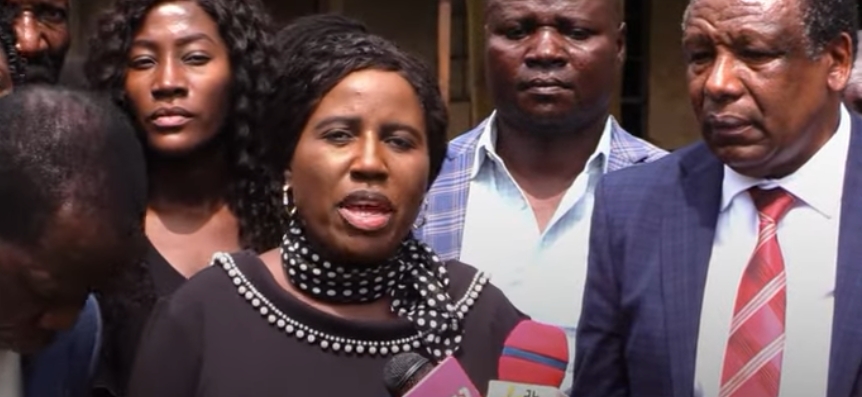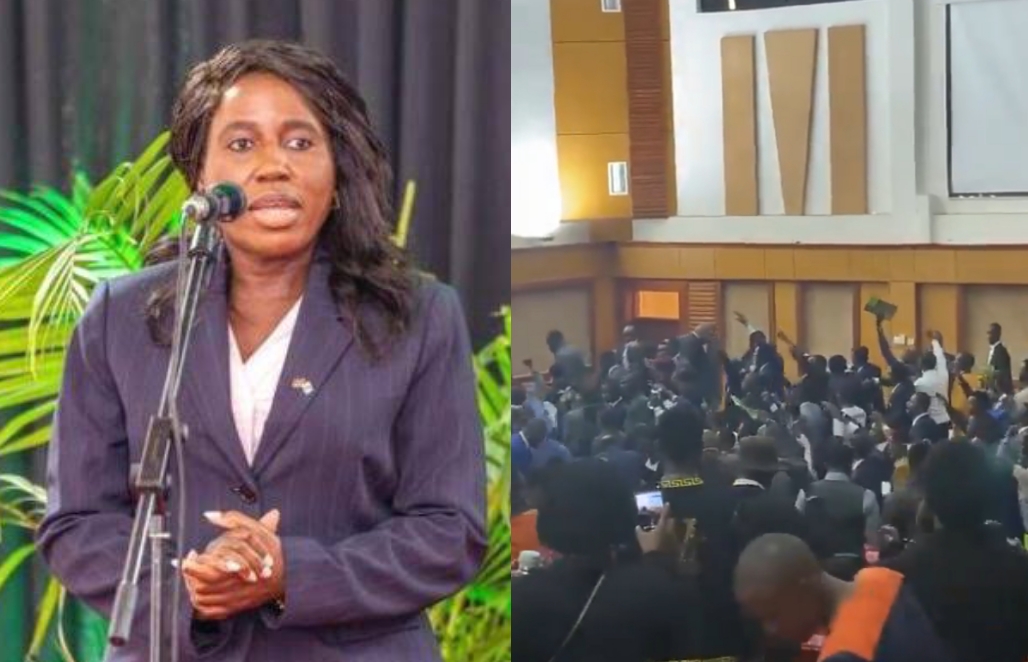In what might awaken the Gen Z spirit that had been cooling down following the Name Nane demos that didn’t actualize as a result of some Kenyans feeling that their men had joined the govt, fresh details have indicated that Chaos erupted at the Kenya School of Government last Friday as students clashed with Ministry and HELB officials over the newly introduced Higher Education Funding (HEF) model.
What was intended to be a smooth public engagement quickly descended into disarray, highlighting the growing tensions within the education sector.

Education PS Beatrice Inyangala speaks during a past media presser
Blogger Cyprian Nyakundi, posting on X (formerly Twitter), claimed that the “public engagement” was little more than a staged performance designed for the cameras.
Nevertheless, reports surfaced that students were allegedly given Ksh 4,000 each to attend the meeting, creating a false impression of support for the HEF model.
However, this façade soon crumbled as students voiced their genuine discontent, turning the event into an outright rejection of the funding plan.

Education PS presiding over a past academic graduation ceremony
Media outlets, seemingly attempting to control the narrative, portrayed the opposition as coming solely from private universities. In reality, students from across all institutions had expressed their dissatisfaction with the new funding model.
This perceived misrepresentation only served to intensify the anger among students, who felt their voices were being ignored. Furthermore, rumours spread that University of Nairobi (UON) student leaders were allegedly paid Ksh 50,000 each to endorse the model.
However, this perceived betrayal did not go unnoticed, leading to their swift ejection from the venue by their furious peers.
The true motives behind the event became increasingly apparent as the day unfolded. It seemed to be a desperate attempt by the government to manufacture consent for an unpopular policy.
Nevertheless, the unyielding resistance from students made it clear that the government’s efforts had failed. This incident has further highlighted the widening disconnect between the government and the youth, raising significant concerns about the future of education funding in Kenya.



